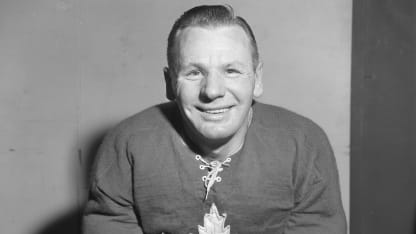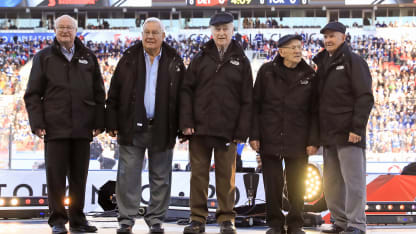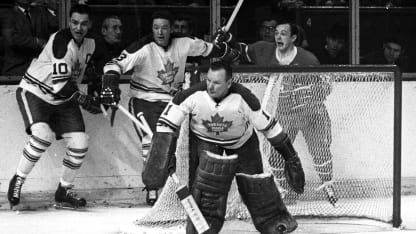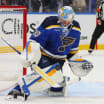Goaltender
Johnny Bower
, who spent 13 seasons in the minor leagues before putting together a Hockey Hall of Fame career that included helping the Toronto Maple Leafs win the Stanley Cup four times in the 1960s, died Tuesday of pneumonia. He was 93.
"There is so much to appreciate in Johnny Bower's accomplishments on the ice -- including the four Stanley Cups and membership in the Hockey Hall of Fame -- and yet there was so much more to the man who served his sport, his country and his community with such distinction," NHL Commissioner Gary Bettman said. "Johnny Bower enriched us all by sharing the pure joy he felt for the game he played and for the men who played it, with him and against him. It was a personal privilege to know him, a delight to be in his presence, and an honor to celebrate him as one of the 100 Greatest Players in NHL history.
"Johnny Bower was a bright light of our sport, a light that will shine forever. As the NHL family grieves his loss, we send heartfelt condolences and comfort to his wife, Nancy; his family; and his countless friends inside and outside the game."
Bower dies at age 93
Won Stanley Cup four times with Maple Leafs, inducted into Hockey Hall of Fame in 1976


© Dave Reginek/Getty Images

© Dave Sandford/Getty Images

© Denis Brodeur/Getty Images

















